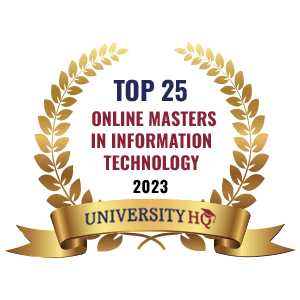What is Computer Information Technology?
Degrees in computer information technology can lead to various career opportunities in Missouri. While anyone can pursue this major, it’s likely to be particularly appealing to individuals interested in and proficient with computers. It’s important to realize this subject area is similar to computer science, though they can result in very different occupations. Computer science curriculums focus on the theories and technologies used to design and develop computers and computer programs. Information technology programs, on the other hand, teach the knowledge and skills needed to maintain and troubleshoot computers, networks, systems, and databases. However, you can find degrees that cover both fields.
In most cases, these professionals perform tasks associated with the study, design, development, implementation, support, and/or management of computer-based information systems. This can entail analyzing technical problems, identifying computer requirements, and/or solving technological issues as they arise. They may respond directly to user needs associated with various computer-based systems. As it is common for jobs to encompass multiple roles, workers in this field tend to have wide ranging knowledge and skills relevant to information technology.
Work settings can vary, as well. Depending on the position and type of work performed, information technology professionals may perform their duties in small offices or large research facilities. It’s also common for these experts to move between multiple locations. In some cases, they may even be capable of completing tasks from home.

Featured Online Programs
Online Information Technology (IT) Education in Missouri
Notably, companies and organizations across numerous industries rely on information technology professionals, making jobs readily available to graduates. Work is most prevalent, however, in software development, finance, healthcare, and manufacturing. The continued collection and storage of data, in conjunction with an increasing need for information security, will also keep the field relevant for the foreseeable future.
According to the US Bureau of Labor Statistics (BLS), employment in computer and information technology occupations is expected to increase by 15% from 2021 to 2031. This is much faster than the average of all occupations and will account for approximately 682,800 new jobs in the field throughout the nation. An additional 418,500 openings are expected each year due to the need to replace workers leaving their occupations permanently.
Information is the ninth largest industry in Missouri, accounting for $12.9 billion in revenue each year. Professionals in this field are also likely to find employment in many of the state’s other top sectors such as business services, manufacturing, education, finance, retails, and entertainment.
Based on data provided by the US Bureau of Labor Statistics, 87,450 computer and mathematical professionals were employed in Missouri as of May 2022. The annual mean wage for these occupations was $88,390, which is significantly higher than the state’s annual mean wage of $54,520 for all occupations.
Missouri is home to several colleges and universities that offer degree programs in information technology and other related subjects. Remote enrollment also makes it possible for students to study from nearly anywhere with internet access. Those with intentions of working in the state, however, may want to give preference to local institutions. These schools will provide the most geographically relevant education, ensuring those enrolled obtain the knowledge and skills coveted most by employers in the area.
Those who want to complete a program in information technology in Missouri and enter the local job market will have many options when it comes to universities and colleges in Missouri that they can attend. These options include Park University, the University of Missouri - Columbia, Lindenwood University, etc.
There are numerous computer information technology professions available in Missouri, with companies and organizations of every kind hiring this type of worker. In fact, opportunities exist in most industries. While this makes employment relatively prevalent in the state and beyond, standards and expectations can vary drastically between positions.
The majority of computer information technology employers in Missouri and the rest of the United States expect workers to possess some amount of higher education. While a high school diploma or GED may be enough to obtain entry-level employment in the field, opportunities like this are extremely limited. Self-taught knowledge and skills are also generally insufficient, especially when applying for jobs offered by large companies and organizations.
In most cases, those who enroll in post-secondary academic programs tend to have the best professional prospects. Applicable higher education programs in information technology are offered by most colleges and universities, with options available at the associate, bachelor’s, master’s, and doctoral levels. While advanced degrees typically lead to the best job opportunities, the amount of education necessary is usually dictated directly by the type of employment sought.
Associate Degree (AS)

Associate degree programs in information technology generally consist of 60 credit hours of coursework that takes full-time students approximately two years to complete. The majority of undergraduate programs like these are comprised of both general liberal arts and major-specific classes. This means that students typically study basic communication, mathematics, and science subjects in conjunction with major-specific content. As a result, those enrolled often develop strong academic foundations for future learning, as well as a basic introduction to the field. While curriculums vary by institution, information technology programs at this level often cover topics in web development, database management, web programming, and network infrastructure management.
Graduates with associate degrees of this kind can generally pursue employment as computer support specialists, industrial engineer technicians, web developers, digital designers, network systems administrators, and computer programmers. This is a particularly good option for those seeking to save money while pursuing higher education. These programs are typically offered by community colleges, which charge lower tuition and fee rates than traditional four-year institutions.
As previously mentioned, most employers seek candidates with bachelor’s degrees. As a result, many who possess associate degrees ultimately choose to pursue further education. Enrolling in traditional four-year program is often easier than graduates anticipate, however, especially because undergraduate course credits are transferrable. Most colleges and universities accept up to 60 credit hours from properly accredited schools, which roughly equates to two years of classes. In most cases, those with associate degrees generally only require two additional years of education before they can graduate with more advanced degrees.
Bachelors Degree (BS)

An information technology bachelor degree program generally consist of 120 credit hours of coursework that takes full-time students approximately four years to complete. As undergraduate programs, most are still comprised of both general liberal arts and major-specific classes. In addition to basic communication, mathematics, and science subjects, organizational leadership programs of this kind often cover topics in information technology infrastructure, database management, cyber security, and information systems design. Those enrolled should also expect classes to emphasize technical communication and mathematics skills, as well as web design and programming.
Information technology majors pursuing bachelor’s degrees may also be given opportunities to select concentrations. Choosing a sub-field specialty area like this can help direct instruction and prepare students for work in certain jobs.
According to the US Bureau of Labor Statistics, the majority of computer and information technology occupations require candidates to possess bachelor’s degrees. Graduates often qualify for employment opportunities as computer systems analysts, cyber security consultants, and software development specialists. Additionally, it’s common for individuals with knowledge and skills in this field to find work in other industries such as education, healthcare, manufacturing, and business.
Employment is not the only option for graduates, however. In fact, many who obtain bachelor’s degrees in computer information technology opt to further their education by enrolling in master’s programs. Graduate school is not necessary for most jobs in the field, but it can lead to more professional opportunities and higher pay. Those planning to apply to master’s degree programs should be prepared to provide official undergraduate transcripts to gaining institutions. Applicants will also need to meet minimum grade point average (GPA) and Graduate Record Examinations (GRE) test score requirements.
Find Your Online Information Technology Program
Masters Degree (MS)

A master’s information technology program generally consist of 30 to 60 credit hours of coursework that takes full-time students approximately two years to complete. Notably, graduate programs no longer incorporate general liberal arts classes. Incoming students may be required to possess certain undergraduate prerequisite courses, however, as well as real world experience. This ensures those enrolled have the basic knowledge needed for advanced study of specific topics.
While curriculums vary, most graduate programs strive to prepare those enrolled for advanced employment in the field. To ensure they possess the necessary knowledge and skills, institutions typically focus instruction on software design, data management, financial management, project management, and program and application development. Students are also likely to complete capstone projects and/or participate in internships.
As with bachelor’s degree programs, students are often provided opportunities to select a concentration.
Some of the most common specializations offered include:
- Data Analytics
- Information Security
- Information Technology Management
- Smart Technology
- Web Design
Graduates are often qualified to apply for advanced positions in the field. They often find work as data managers, network administrators, software engineers, and cyber security analysts.
Online Doctorate (PhD)
Doctoral degree programs in information technology vary significantly, but generally consist of between 60 and 120 credit hours. The various requirements commonly take up to six years to complete. Accelerated online programs do exist, however, which may take less time to finish.
These are terminal degrees and, as such, are quite academically intensive. Extensive independent study and research are also generally necessary. Curriculums vary, but often include various advanced topics in computer science, information systems, networking, and database administration. Students should also anticipate learning about strategic analysis research, research design, quantitative research, and qualitative research. These subjects become particularly relevant as those enrolled begin working on dissertations, which are commonly required for graduation.
It's important to note that computer information technology PhD programs may vary slightly. In addition to the subjects mentioned above, students seeking this type of degree are also likely to study programming languages, software systems design, and modeling communication networks.
Relatively few professions in the field require candidates to possess doctoral degrees. This level of education can, however, lead to some very prominent occupations. Graduates typically have the knowledge and skills necessary to pursue employment as information technology architects, information technology project managers, postsecondary educators, and senior data scientists.
Become an Information Technology Expert in Missouri
There are many different kinds of computer information technology professional. Every occupation is unique, with distinct hiring standards and expectations. As a result, the first step to entering the field is generally determining your ultimate career goals. Once you identify the type of work you want to perform, it becomes significantly easier to map a viable course to success.
The next thing you should do is figure out which degree will be most appropriate. Spend some time researching your intended profession. This will tell you how much education is necessary, as well as which major area of study will serve you best. Additionally, this should prepare you to select the most applicable elective courses, academic minor, departmental concentration, extracurricular activities, and/or internships.
In most cases, earning the necessary degree(s) will qualify you for employment in your chosen computer information technology occupation. However, you may want to consider obtaining at least one relevant certification in the field as well. Credentials like these are often highly beneficial as they demonstrate overall dedication to the profession and proficiency in specialized subject areas. Earning certifications not only helps to distinguish yourself from other professionals during the hiring process but it can also improve your overall job prospects, lead to more promotion opportunities, and result in higher salary potential.
Find Online Information Technology Programs
Computer information technology and computer science certifications are typically offered by well-known technology companies, professional associations, and professional certification boards. Some professions require candidates to earn specific credentials prior to employment, but this is not always the case. While you should always be familiar with the hiring standards for your preferred job, you are generally free to pursue any credentials that align with your personal and/or career goals.
Some of the most common vendor-specific and vendor-neutral options available include:
- Certified Cloud Security Professional (CCSP)
- Certified Data Privacy Solutions Engineer (CDPSE)
- Certified Data Professional (CDP)
- Certified Ethical Hacker (CEH)
- Certified Information Security Manager (CSIM)
- Certified Information Systems Security Professional (CISSP)
- Cisco Certified Internetwork Expert (CCIE)
- Cisco Certified Network Professional (CCNP)
- CompTIA
- Microsoft Certified Solutions Associate (MCSA)
- Microsoft Certified Solutions Expert (MCSE)
- Project Management Professional (PMP)
After obtaining one or more certifications, you will likely need to take various steps to maintain it. The majority of certifying bodies require professionals to meet continuing education requirements. These vary, but can often be met by participating in free and/or paid training programs, convention seminars, and/or academic courses. These activities are important as the technology field is constantly changing and progressing. Maintaining your credential(s) ensures you remain familiar with current updates and trends in the field.
Depending on the computer information technology occupation you select, you may also need to consider security clearance. While not usually required, some professions require interacting with highly sensitive information. In these cases, it may be necessary to obtain a high level of security clearance.
Careers for CIT (CIS) Graduates
- Animator
Animators develop 2D and/or 3D animations for games, films, television shows, and commercials. Using a variety of programs and software, they are able to design cartoons and other images. These professionals may develop their creations through hand drawings, motion capture animation, and/or with computers. According to PayScale, animators make an average base salary of $58,791 per year. - Application Developer
Application developers may work for themselves or be hired by companies and organizations. They typically work to develop programs and software that is used on smartphones, computers, tablets, and more. In addition to developing apps, these professionals are also responsible for managing and maintaining the various technological elements associated with them. Additionally, collaboration with other web and information technology professionals is common. According to PayScale, application developers make an average base salary of $73,797 per year. - Cyber Security Analyst
Cyber security analysts work for companies and organizations, maintaining the overall safety of information technology infrastructures and detecting potential security threats. They spend most of their time conducting assessments, offering advice to leadership, and reporting possible intrusion attempts. They may also be tasked with monitoring associated networks and systems and analyzing triggered alarms. According to PayScale, cyber security analysts make an average base salary of $78,642 per year. - Data Entry Clerk
Data entry clerks are hired by companies and organizations as support staff for other employees. They are typically responsible for taking information from paper documents and entering it into databases and transcribing phone calls. They may also be tasked with ensuring that data rosters are updated and easily accessible to other workers. Additionally, they must follow all guidelines established by their employers. According to PayScale, data entry clerks make an average base salary of $36,195 per year. - Data Scientist
Data scientists are responsible for analyzing, processing, modeling, and interpreting data. Using computer science, statistics, and mathematics, they are often able to prevent and solve problems for their employers. In some cases, they may also make recommendations to make existing procedures more cost-effective. According to PayScale, data scientists make an average base salary of $98,342 per year. - Software Designer & Developer
Software designers create computer software for themselves and/or their employers. While this may be completed independently, it more often requires collaboration with other programmers and testers. Afterward, these professionals answer questions about the software they created and troubleshoot any issues that develop. In some cases, they may also be expected to generate detailed resource guides for their programs, explaining what they do and how they work. According to PayScale, software designers make an average base salary of $79,591 per year. - Software Quality Assurance Analyst
Software quality assurance analysts work to ensure there are no errors in software development data. This typically entails implementing regular test plans and using various troubleshooting computer applications. They also frequently develop automation tests, recommend processing systems updates, and help to create related company standards. According to PayScale, software quality assurance analysts make an average base salary of $64,563 per year. - Web Developer
Web developers use code to create web pages and websites for themselves and/or their employers. In some cases, this can entail testing and modifying new software before incorporating it into their projects. They might also be tasked with ensuring that various materials are well maintained and easily accessible in databases. According to PayScale, web developers make an average base salary of $61,797 per year.
Search All Programs
